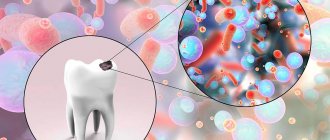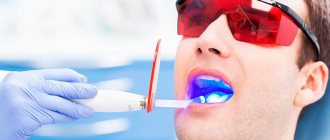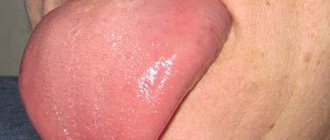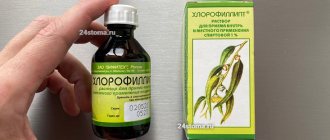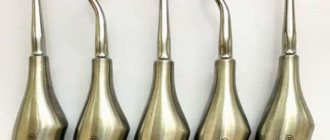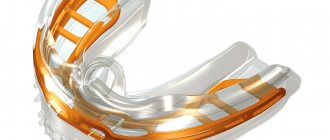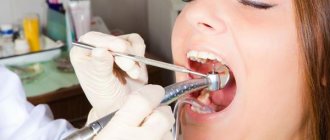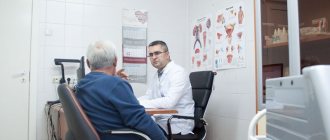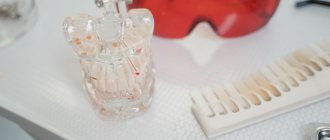If you have a sore throat, a stuffy nose, and a general feeling of malaise, then these are obvious symptoms of a cold. What to do if you have an appointment with the dentist at this time - is it possible to treat teeth if you have a cold? It is impossible to answer this question unequivocally, since most often it is better to postpone a dental appointment until recovery.
Should you have dental treatment when you have a cold?
There is no definite answer to the question whether it is possible to treat teeth with a cold, because in some situations the pain can be so severe that it is simply impossible to endure it. Many dentists believe that it is not worth treating teeth if you have a cold, but each case is individual, and in each specific situation, a consultation with a specialist is first necessary, at which the doctor will determine whether it is better to postpone the visit or still carry out treatment. Dental treatment during a cold is not recommended for several reasons:
- A cold weakens the body's immune system, which increases the risk of contracting another infection.
- Certain types of dental procedures lead to the appearance of wounds through which infection can spread throughout the body.
From all of the above it follows that it is advisable to postpone dental treatment during a cold, even when the toothache is very severe. Moreover, a cold is most often accompanied by nasal congestion or cough, and you will need to stay in the dental chair with your mouth open for at least 40 minutes. This position during a cold can cause a lot of discomfort.
Causes of increased body temperature - normal and pathological
Pain always signals that something in the body is not going as it should. Painful sensations along with elevated body temperature, when the mercury rises above 37 degrees, indicate that the body is reacting to external pathogens.
The body temperature rises in order to create an unfavorable environment for the development of infection. Also, with high numbers, interferon is better produced, which is necessary for the body to fight foreign organisms. For these reasons, you should not lower your temperature, except in cases where it is so high that it itself begins to threaten your health (above 39-40 degrees).
Elevated temperature is a protective reaction of the body
Important ! Antipyretic medications do not eliminate the source of the disease, but only relieve symptoms. This can be harmful because it will interfere with the fight against infection.
Only a doctor can determine the cause of the increase in temperature. For this purpose, tests and necessary examinations are prescribed. You can try to find out on your own why this or that painful condition develops, but doing this instead of visiting a specialist is strictly not recommended.
Is it possible to visit the dentist with a high temperature?
If a cold is accompanied by an increase in temperature, then all qualified dentists will say that it is impossible to treat teeth during this period. The appearance of a high temperature is a sign that the body is fighting the viruses that have infected it. During a cold, the body uses all its strength and capabilities, and additional intervention can only do harm. In addition, in this state, the healing process of any wounds that may arise during dental procedures can be greatly delayed, and, consequently, the possibility of getting new infections will increase. But the situation is completely different if the temperature is caused not by a cold, but by an inflammatory process in the oral cavity. Under such circumstances, seeking the help of a dentist is not only possible, but also necessary, and as soon as possible. After all, even a small cyst in the soft tissues of the oral cavity can lead to serious consequences.
Temperature after dental treatment
A slightly elevated temperature after dental treatment is a normal reaction to intervention in the body’s tissues, especially after treatment of complex diseases (pulpitis, periodontitis). Sometimes weakness and drowsiness may appear, which can be relieved with antipyretics, but you should not get carried away with them.
If three days have passed after treatment and the fever does not go away, you should consult a doctor: he will conduct an additional examination and prescribe the necessary treatment.
How to eliminate toothache during colds?
Since it is better to postpone dental treatment during a cold, the question arises - what to do if the toothache is very severe? In such situations, you can use some methods to slightly reduce pain:
- Take painkillers. Medicines will help not only eliminate pain, but also lower the temperature, because, most often, they contain substances with a wide spectrum of action.
- Place a menthol pill or tablet under your tongue. During the resorption process, menthol will be released, which has an anesthetic effect and soothes pain.
- Rinse your mouth with a soda solution. This procedure must be repeated at least three times within an hour, after which a calming effect should occur.
- Make a compress or use various herbal infusions, for example, a decoction of sage or ginger root.
- Strengthen the treatment of colds. Quite often, toothache can be caused by a deterioration in the general condition of the body, and, therefore, the sooner the cold is cured, the faster the toothache will pass.
Do not forget that all of the above methods can only provide temporary relief from painful sensations, but they can help until you recover and, accordingly, contact a dentist. After the acute period of a cold has passed, you must immediately make an appointment at a dental clinic for further treatment of the tormenting tooth.
Periostitis
If you start periodontitis and do not start treatment on time, an even more serious complication may arise - periostitis. In this case, the periosteum and jaw bones become inflamed. Abscesses form and purulent inflammation develops. Pus comes out of the abscess through the fistulous tract. Symptoms of periostitis are as follows:
- How long does it take for drugs to leave the body?
- acute toothache;
- temperature increase;
- facial tissues swell greatly on one side;
- weakness from intoxication;
- the pain radiates beyond the affected area - to the temples, ears, neck, eyes.
Periostitis most often occurs as a complication of periodontitis
Important ! If periostitis develops, the gums swell not only around the affected tooth, but also around nearby teeth.
Treatment methods for periostitis
Under no circumstances should you self-medicate and the patient should immediately go to an emergency dental care center. There they determine how the treatment will be carried out - surgically or conservatively.
Treatment is either surgical or conservative
With the surgical method, a purulent abscess on the gum is operated on and the contents are drained; In order to avoid the accumulation of pus, drainage is installed. The actions are carried out under local anesthesia.
Important ! If the tooth is too damaged and conservative treatment does not help, extraction is performed. If the condition of the tooth and adjacent tissues allows, the canals are cleaned and a filling is placed.
During the rehabilitation period, physiotherapy is prescribed and antibiotics are prescribed.
Is it possible to visit the dentist if you have a cold on your lips?
Cold sores or Herpes is a common viral disease. Before visiting the dentist, you should find out whether it is possible to treat your teeth if you have a cold on your lips. Dentists do not perform dental treatment if they find herpes on the lips. This is explained by the fact that the virus from the lips can enter the oral cavity during treatment. And this can lead to another dental disease – stomatitis. It should be noted that even under sterile conditions in the dental office, the herpes virus can continue to exist, and there is a high risk of infecting the next patient at the appointment. Proper treatment of colds on the lips takes only a few days, so it is better to postpone a visit to the dentist during treatment.
From all of the above it follows:
- In most cases, it is better to postpone dental treatment for a cold.
- Treatment is possible only in emergency cases.
- To reduce toothache during a cold, you can use various remedies. By choosing the most suitable ones, you will be able to make this period easier.
- If immediately before your appointment with the dentist you have a cold on your lips, then without hesitation, you need to reschedule the date of your visit.
Take care of your health and be healthy!
Can a tooth cause a sore throat and why does this happen?
Yes, maybe it is explained by anatomical proximity. Therefore, it should be understood that we are talking about molars, and sometimes about “wisdom teeth” located close to the pharynx. If the front incisor and throat hurt at the same time, then they are unlikely to be somehow connected. And inflammation, especially purulent, of a molar can spread to the tonsils and submandibular lymph nodes, causing discomfort in the larynx and redness of the mucous membranes; Other symptoms include gingivitis and imaginary ear pain.
Accordingly, they first go to the dentist to solve the problem with a bad tooth. After treatment, doctors prescribe rinses with antiseptic solutions, which also cope with sore throats.
To lower the temperature or not to lower it?
If the thermometer does not rise above 38 degrees, taking antipyretics is not required - this is the body’s protective reaction to the invasion of bacteria and viruses. To alleviate the condition, painkillers and anti-inflammatory drugs are prescribed. It makes sense to lower the temperature only in cases where it rises significantly above 38 degrees.
It's not always worth lowering the temperature
Alveolitis
In some cases, pain and fever begin immediately after tooth extraction. For the first two days, this is acceptable, especially in cases where the process was complex and it was necessary to operate on the gums or extract parts of the tooth. In such cases, the temperature may rise for up to a week, gradually decreasing. However, you need to remain under the supervision of a doctor until the symptom goes away completely.
High temperature occurs in cases where wound healing after dental extraction does not proceed as expected. Alveolitis occurs - inflammation of the tooth socket. Most often, this happens because the wound left after extraction becomes infected, and the blood clot, which normally protects the wound from external influences, is missing or damaged for some reason.
Alveolitis occurs due to infection entering the socket
As a rule, the clot is damaged if the dentist’s recommendations are not followed correctly (mechanical damage to the clot when eating or brushing teeth, vigorous rinsing of the mouth, etc.). Another reason is weakened immunity.
Important ! Also, the clot can be damaged due to erroneous actions of the doctor.
The following symptoms indicate alveolitis:
- increased pain after tooth extraction;
- increased body temperature (above 38-39 degrees);
- the appearance of plaque on the hole;
- unpleasant taste in the mouth, odor;
- swelling of soft tissues;
- enlarged submandibular lymph nodes;
- weakness and malaise.
With alveolitis, the temperature also rises
Treatment methods for alveolitis
This is a serious complication that requires long-term and complex therapy. The set of treatment measures is as follows:
- The dentist thoroughly sanitizes the hole, removing all foreign particles: food debris, tooth fragments, etc.
- The wound is washed with antiseptics, excess fluid is removed from it, and if necessary, antibacterial treatments are used.
- A bandage is applied to prevent pathogens from entering the wound.
- Physiotherapy is prescribed: laser, ultraviolet or microwave treatment, fluctuarization.
- The patient is advised to take antibiotics and antiseptics prescribed by the doctor.
Fluctuarization
Is it possible to remove a tooth during ARVI?
Surgeons, as a rule, do not advise a patient to remove teeth if he has symptoms of ARVI. The risk of infection of an open wound during such manipulation is very high. Even the immune system of a healthy person sometimes fails to protect itself, and complications arise. And if the immune system is loaded with the fight against the virus, then this is an almost one hundred percent guarantee of the development of complications after surgery.
Attention! Tooth extraction during a respiratory viral disease is possible only for health reasons. In this case, the surgeon must thoroughly disinfect the entire oral mucosa and surface of the teeth, as well as the patient’s lips. After removal, he treats the wound itself with antiseptic drugs, and the patient is prescribed a course of antibiotics and drugs that strengthen the immune system. It is recommended to adhere to the schedule for taking such medications throughout the entire course of treatment.
Sinusitis
Another disease not related to teeth, but which gives characteristic pain and temperature is sinusitis. Caused by inflammation of the maxillary sinuses. They destroy the wall adjacent to the oral cavity, so the sensation is reminiscent of toothache.
Sinusitis causes similar symptoms
Sinusitis can result from the following diseases:
- ARVI;
- acute or chronic rhinitis;
- chronic tonsillitis (inflammation of the tonsils);
- damage to the teeth of the upper jaw by caries.
Important ! Patients with such anatomical features as narrowing of the nasal passages and deviated septum are at risk. Another cause of sinusitis is errors during surgical interventions on the upper jaw.
With sinusitis it is also difficult to breathe through the nose
One of the symptoms of sinusitis is an increase in temperature to 39 degrees. The disease is accompanied by severe pain in the forehead, nose, maxillary sinuses and cheekbones. It becomes difficult to breathe through the nose, and as the disease progresses, greenish discharge appears.
